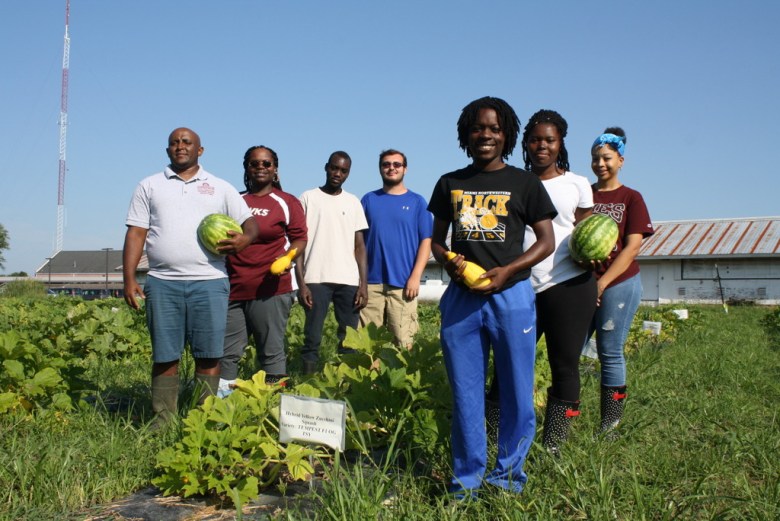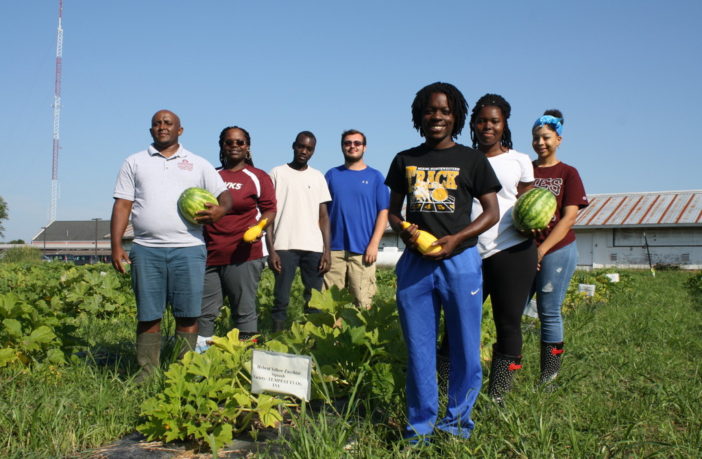 Three Maryland HBCUs: Bowie State, Coppin State and University of Maryland Eastern Shore received grants to advance their STEM programs and initiatives. (Courtesy photo)
Three Maryland HBCUs: Bowie State, Coppin State and University of Maryland Eastern Shore received grants to advance their STEM programs and initiatives. (Courtesy photo)
By Megan Sayles
AFRO Business Writer
Report for America Corps Member
msayles@afro.com
According to the United Negro College Fund (UNCF), 25% of African-American graduates with science, technology, engineering and math (STEM) degrees come from historically Black colleges or universities (HBCUs).
These institutions play a pivotal role in diversifying the STEM workforce, which primarily consists of White males. In order for HBCUs to continue strengthening the STEM pipeline for students of color, they need funding to acquire the latest technology and to create more opportunities for research and workforce development.
Bowie State University (BSU), Coppin State University (CSU) and University of Maryland Eastern Shore (UMES) epitomize HBCUs that are obtaining grants to advance STEM endeavors.
This year, the National Science Foundation (NSF) awarded BSU two grants. The first amounted to $1 million, and the university is using the money to contrive a High-Performance Intelligent Data Science Institute. It will enable the university to expand its doctoral program in computer science and foster a new specialization in data science.
The second grant totaled $1.2 million, and BSU will use the money to research vulnerabilities associated with smart and internet-connected devices. Students will learn how to defend against cyber attacks.
“We’re looking at an innovative curriculum that can teach our students how to work out cybersecurity and how to be proactive because there’s so many jobs in cybersecurity,” said Rose Shumba, chair for the department of computer science at BSU.
According to Shumba, cybersecurity jobs are currently in-demand and data science is becoming an emerging area of STEM.
At CSU, many of the recent STEM grants are being used to address environmental and health issues. Constellation, an energy company, lended its support to conduct research in renewable energy, and the National Institutes of Health (NIH) is helping students study the synthesis of biological markers for clinical diagnosis.
The university also received a Maryland Industry Partnerships (MIPS) grant, which will be used to develop sensors for monitoring human motion and health. “As our research standing rises, and our STEM offerings increase, Coppin continues to grow and fulfill its mission of being a leading anchor institution in urban higher education,” said a spokesperson from CSU.
UMES, one of 19 historically Black, land-grant institutions, has been awarded grants related to marine sciences and agriculture.
This summer, the U.S. Navy awarded chemistry professor Victoria Volkis $1 million to conduct research into the formation of biofilm, which causes the attachment of barnacles and significantly damages ships and marine platforms. For the project, she will lead a team of underrepresented minorities who are studying natural sciences.
The National Oceanic and Atmospheric Administration recently announced that it would renew a 20-year-old partnership with UMES to continue funding academic programs and research for minorities to pursue careers in marine and related sciences.
The university has also received funding from the U.S. Department of Agriculture to identify ideal varieties of industrial hemp that can be utilized for commercial production.
“We’re reading and hearing more and more about civic and business leaders’ recognition that to keep the engine of the American Dream humming the way it did in the 20th century, having a well trained-diverse workforce is key to success in the 21st century,” said Bill Robinson, chief spokesman for UMES. “UMES intends to contribute to that success.”
Help us Continue to tell OUR Story and join the AFRO family as a member – subscribers are now members! Join here!



